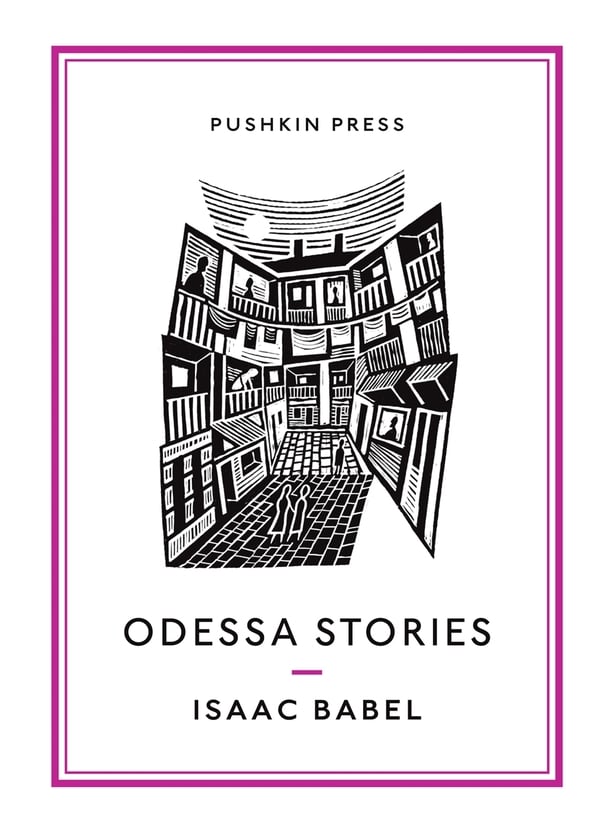Isaac Babel was a short story writer, playwright, literary translator and journalist who was murdered in Stalin's purges in 1940, at the age of 45. His Odessa Stories are humorously satirical and mildly grotesque in character depiction.
Babel had joined the Red Army as a correspondent during the Russian Civil War and was the first important Russian-Jewish writer to write in Russian. His writings were hugely popular during his lifetime, stories such as those gathered under the title, Red Cavalry, which have also been published by Pushkin Press in recent times.

Beggars, prostitutes, swindlers and chancers, all populate his pages in the stories in the first section of the book. A kind of tenderness in tone, the feel of a different milieu can be discerned in the second section, as a more haute bourgeousie Odessa is portrayed.
The writer's cussed air of mischief, and ability to portray the folly of much human endeavour must surely have cost him his life, quite aside from the fact that he was Jewish (he describes the harrowing details of a 1905 anti-Jewish pogrom in one of the stories.)
His excoriating wit thrived on a certain amount of local knowledge and nuance, and as a result, the impact can seem somewhat veiled in translation, if not occasionally lost, despite helpful footnotes. Footnotes, in any case, can only carry the reader so far. That contempt, veiled or otherwise, had much to do with his demise with, presumably, a corresponding refusal to be bought by the authorities.
Certainly the objects of his derision would appear to have included the new broom of Bolshevism sweeping pitilessly across Russia. Babel was murdered in Stalin's purges in 1940, at the age of 45.
Take the fine story, The End of the Almshouse which is set during the Ukrainian famine of 1920-1923 when more than a million people died of starvation and disease. Was this tale viewed as an example of airing dirty linen in public? In the story, it is an ill wind that does not blow some good and the scarcity of timber is good news for the half-starved denizens of the almshouse for the elderly, built on the outskirts of Odessa. They profit from its situation close to the cemetery, and can now afford to get drunk in the evenings, whatever about their modest food rations.
Babel writes: "After the Revolution, the old men and women who'd been living off alms at the cemetery grabbed positions as gravediggers, cantors and corpse-bathers. They got hold of an oak coffin with silver tassels and a pall, and started hiring it out to the poor."
Their plan goes well until a local military leader is buried with full honours, which include burial in the money-making coffin, which event summarily ends to the hire business. "The rage of the starving codgers rose ever higher," as Babel expresses it in Boris Dralyuk's translation.
Read, in other stories collected here, of the exploits of Benya Krick, known as 'The King' (of the gangsters), or the one-eyed Froim the Rook, both fearful gang leaders in the fabled Black Sea port of the title. As we read in Dralyuk's preface, such figures were based on real-life gang leaders of the time.
In the author's cleverly deft portrayals, The King and Froim the Rook are anachronistic survivors from another era, dealing out their rough justice, while regarded with a combination of fear and grudging admiration by the poorer inhabitants of Odessa.
Babel - in translation at least - has a certain whiff of his near contemporary, Sean O'Casey, and his is still an original, sparky voice sounding out of the great Russian literary pantheon.
Paddy Kehoe


